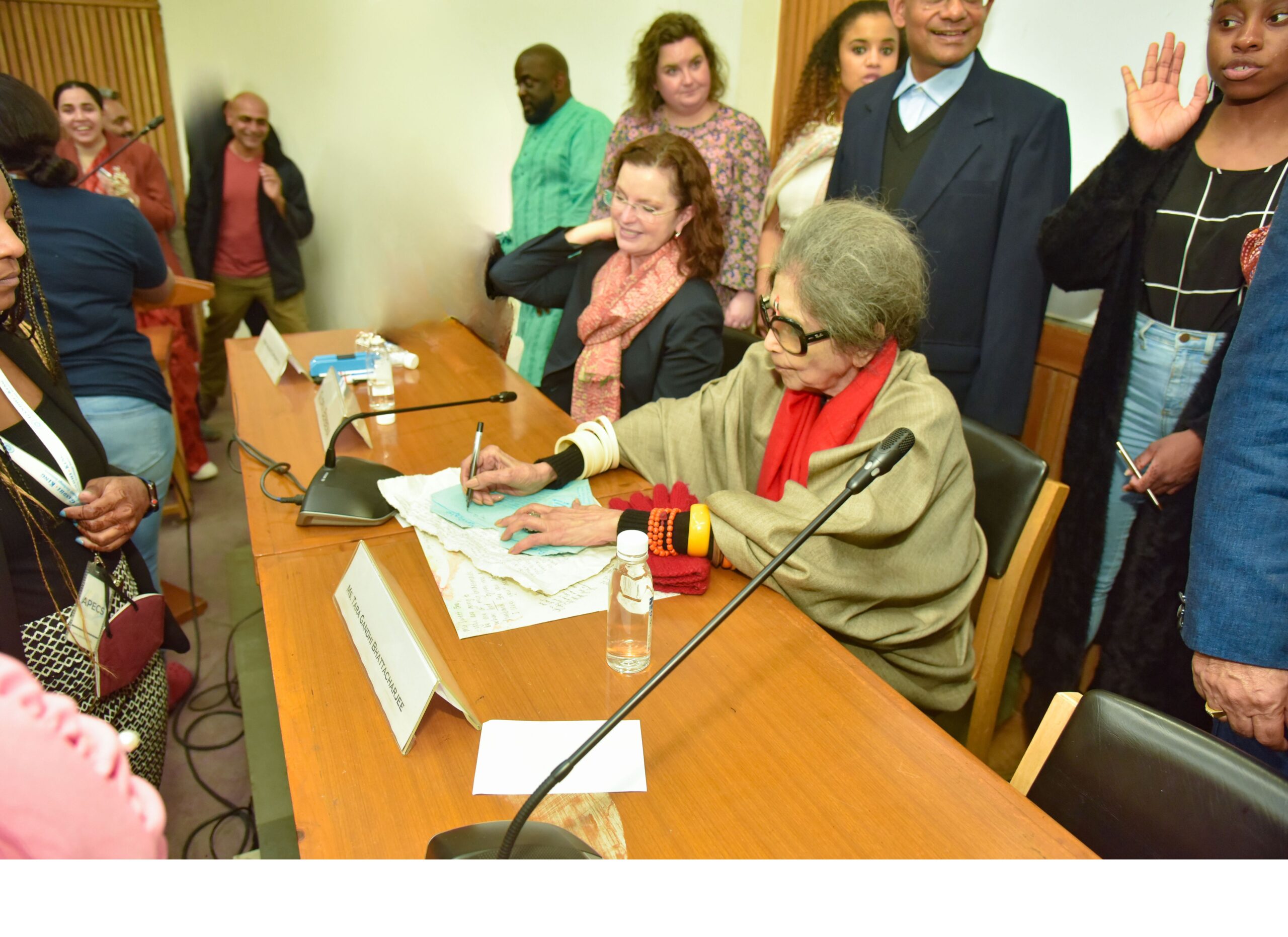A Master Class by the Indian Institute of Public Administration for Gandhi-King Scholarly Exchange Initiative Participants
The Indian Institute of Public Administration (IIPA) recently hosted a Master Class Training Programme for the Gandhi-King Scholarly Exchange Initiative’s India Residency. This program was organized in collaboration with Academic, Professional, and Educational Consultancy Services (APECS) and aimed at fostering leadership and enhancing the understanding of public administration among participants. This unique initiative brought together scholars from diverse backgrounds, reflecting the spirit of the exchange program named after two of the most iconic leaders of nonviolent resistance and social justice—Mahatma Gandhi and Dr. Martin Luther King Jr.
A Convergence of Ideals and Practical Learning
The Gandhi-King Scholarly Exchange Initiative is a testament to the enduring legacies of Mahatma Gandhi and Dr. Martin Luther King Jr., focusing on promoting mutual understanding, respect, and shared values between nations. The India Residency component of this initiative provided participants with a deep dive into India’s socio-political landscape, public administration practices, and leadership challenges.
The Master Class, organized by IIPA, was a crucial component of this residency. IIPA is a premier institution in India, promoting excellence in public administration and governance.
Key Highlights of the Master Class
- Leadership and Governance in the 21st Century: The Master Class kicked off with a session on the evolving landscape of leadership and governance. Experts from IIPA shared their insights on how leadership models are changing in response to global challenges such as climate change, technological advancements, and the need for more inclusive governance structures. Participants engaged in discussions on the role of public administration in shaping policies that are both effective and equitable.
- Public Policy Formulation and Implementation: Another critical area of focus was the process of public policy formulation and its implementation in India. The sessions covered the complexities involved in creating policies that address the diverse needs of a vast population like India’s. Through case studies and interactive discussions, participants gained a deeper understanding of how public policies are designed, debated, and put into practice in a democratic setup.
- Gandhian Principles in Modern Public Administration: Reflecting on the core values of the Gandhi-King Exchange Initiative, the Master Class included a session on the relevance of Gandhian principles in contemporary public administration. This session highlighted how concepts like nonviolence, truth, and ethical leadership can be integrated into modern governance to create a more just and humane society.
- Field Visits and Practical Exposure: To complement the theoretical knowledge, the program included field visits to various government institutions and NGOs in Delhi. These visits provided participants with a firsthand look at the implementation of public policies and the challenges faced at the grassroots level. The practical exposure was invaluable in helping participants connect the dots between theory and practice.
- Interactive Workshops and Group Discussions: The Master Class was designed to be highly interactive, with numerous workshops and group discussions. These sessions encouraged participants to share their perspectives, challenges, and experiences from their home countries, fostering a rich exchange of ideas. The collaborative environment helped in building a network of like-minded individuals committed to advancing public administration and social justice.
The Impact and Future Prospects
This Programme was more than just an academic exercise; it was a platform for nurturing the next generation of leaders who are expected to take forward the values of Gandhi and King in their respective fields. Participants left with a deeper appreciation of the complexities of public administration, equipped with new tools and perspectives to address the challenges they face in their home countries.
This collaboration between IIPA, APECS, and Alabama University marks a significant step in fostering global leadership that is both principled and effective. The success of this program sets a precedent for future collaborations, aiming to build a world where public administration and leadership are grounded in the ideals of justice, equality, and nonviolence.
As the participants return to their countries, they carry with them not just the knowledge and skills gained, but also the inspiration to lead with integrity and purpose, much like Gandhi and King envisioned.




